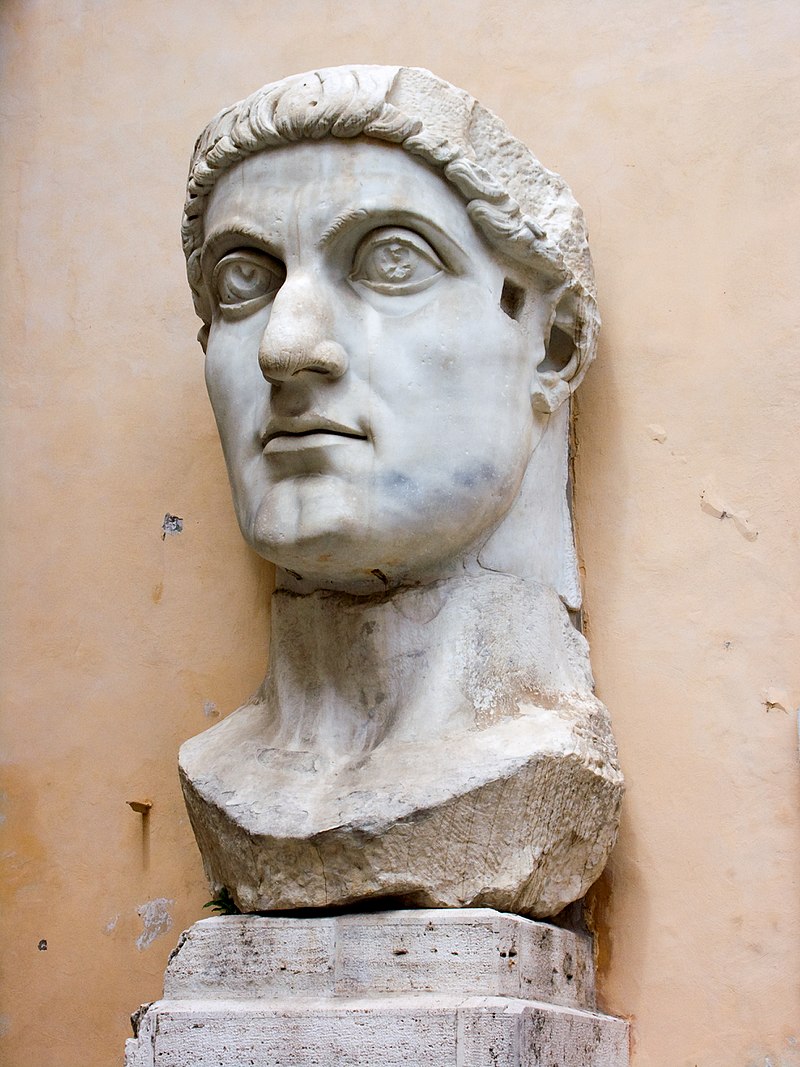
1/ Today, for #GoodFriday, a slightly longer #thread from #Archaeology_Online about the history of the Church of the Holy Sepulchure, & it's connection to the crucifixion of #Jesus. It's mainly a testament to the power of tradition. >>
@nickfshort @nidgethompson @History1History
@nickfshort @nidgethompson @History1History

2/ >> Our story begins in 306 CE, when Emperor Constantine the Great takes the throne. In 324 CE he founded the capital of the Eastern Roman Empire in the city of Byzantium, from where he ruled with his mother Helena, by his side. >> 

3/ >> It is unclear in which manner Constantine adopted Christianity, and he actually converted to Christianity only on his deathbed. Between 326 and 328 AD, his mother, Helena, traveled to what is now the Land of Israel, based on the writings of Eusebius of Caesarea. >> 

4/ >> By the time Helena arrived in Jerusalem, it was being rebuilt after the destruction following the Great Revolt. According to a quote from Josephus, "Here was a temple of Venus in place. It is the Queen (Helena) who destroyed". >> 

5/ >> The quote talks about the temple Hadrian built on the Golgotha hill, where according to the NT Jesus was crucified, & the cave in which he was buried. Helena ordered the temple dismantled & to start digging there, 3 crosses were found. >>
* Visible part of Golgotha rock.
* Visible part of Golgotha rock.

6/ >> The story appears in Ambrose's "Theodosius' Death", but not in Josephus, which is considered a historical source. The difficult question Helena faced according to the story, was of course, which of these three crosses is the real cross? >> 

7/ >> Helena then ordered a sick woman be brought, on her deathbed, & ordered the woman to touch the first cross. When she touched it nothing happened, even when she touched the second cross nothing happened, but when she touched the third cross she recovered immediately. >> 

8/ >> Helena declared the real cross had been found & took it back to Byzantium. Over the years it was dismantled & handed out to all sorts of places for different purposes. Today there are hundreds of churches in Europe that claim to have a part of the original cross. >> 

9/ >> It is said that the 1st Crusade had part of the original cross and therefore succeeded, on the other hand it is said that the Crusader forces who fought against Saladin at the horms of Hattin had part of the original cross, and they weren't very successful. >> 

10/ >> This story has no reliable source or archaeological evidence, but is established in Christianity. Helena's excavation site is where the Church of the Holy Sepulcher stands today, it's eastern part above Golgotha & the western part above Jesus's burial cave. >> 

11/ >> We can't talk about the Church of the Holy Sepulchure without talking about the tale of the ladder above the front door, in the upper right window.
The monks from the Armenian denomination on the top floor of the church would receive food through the upper right window. >>
The monks from the Armenian denomination on the top floor of the church would receive food through the upper right window. >>

12/ >> They would come out of the window with the help of the ladder. Throughout the years of the church's existence the Christian denominations that hold the various parts of the Church are in constant debate over which part of the church belongs to which denomination. >> 



13/ >> At the end of the 18th century, a status quo was agreed on between the denominations, the situation in the church was established. Since then nothing has been moved in the church, including the ladder.
* The Ladder in a Painting by Charles Wilson, 1881.
* The Ladder in a Painting by Charles Wilson, 1881.

14/ >> In 1964, Paul VI stated that the ladder was a symbol of the problems of Christianity and that it would remain in place until the unification of the Catholic and Orthodox Churches.
- The End -
* The photo's of the ladder were taken last year.
- The End -
* The photo's of the ladder were taken last year.

• • •
Missing some Tweet in this thread? You can try to
force a refresh























